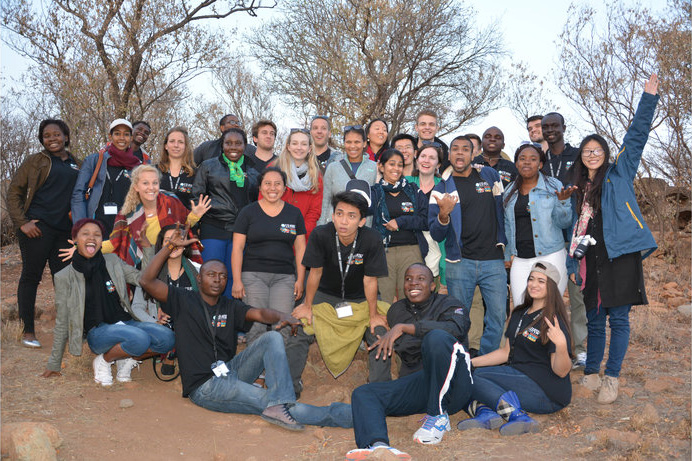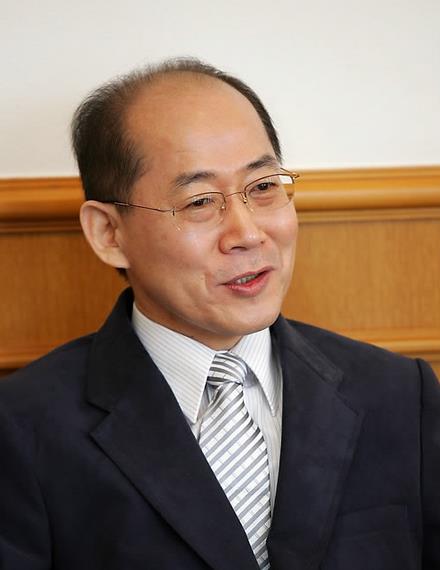World Wildlife Day 2017: How young people can make a change
Vigorous efforts need to be made to encourage young people to act at both local and global levels to protect endangered wildlife, the United Nations has said.

The UN, which made the submission against the backdrop of this year’s edition of the World Wildlife Day (WWD) 2017 that was observed worldwide on Friday, March 3 2017, pointed out that, being the future leaders and decision makers of the world, the engagement and empowerment of the youth is high on its agenda.
The theme of the WWD 2017 is: “Listen to the Young Voices.”
The UN says: “World Wildlife Day 2017 encourages youth around the world to rally together to address ongoing major threats to wildlife including habitat change, over-exploitation or illicit trafficking. Youth are the agents of change. In fact, we are already seeing the positive impacts on conservation issues made by some young conservation leaders around the world.”
The Youth for Wildlife Conservation has expressed delight that the WWD is celebrating the growing impact of youth in conservation efforts worldwide.
It says: “With people under the age of thirty representing over half of the world’s population, and the fate of some of the world’s most endangered and iconic species on the edge of existence, it is becoming all the more important to engage young people in decisions affecting the world’s wildlife.
“From patrolling forests to protect rhinos in South Africa or combating wildlife trade in Vietnam, to rescuing orangutans in Borneo and animating wildlife workshops in Canada, the collective youth impact is widespread and undeniable. It is now time, on World Wildlife Day, to acknowledge and applaud the dedication and energy of young wildlife lovers across the globe working towards a common goal, to protecting our priceless wild animals and plants for generations to come.”
Reactions have trailed the special day for wildlife.
UN Secretary-General, António Guterres: “Poaching and illegal trafficking pose a significant threat to wildlife, especially some of the world’s most iconic and endangered species. Strict enforcement of laws is important, but so too is awareness. As consumers, we have the power to demand that all wildlife products come from sustainable sources. I particularly appeal to young people to protect their inheritance by becoming informed and acting to protect wild animals and plants from the threat of extinction.”
Deputy UN Secretary General, Amina J. Mohammed: “Over the past four decades, half of all wild animals and plants have been lost because of habitat loss, climate change, over-exploitation, poaching and illicit trafficking. Around the world, young people are playing an increasingly important role as responsible consumers and future conservation leaders to reverse this trend. On this fourth World Wildlife Day, I encourage people everywhere to stand up for the world’s wildlife and work for a better world, where all can live in peace and prosperity on a healthy planet.”
UNESCO Director-General, Ms Irina Bokova: “The stakes are higher every day. Crimes against wildlife have been increasing over the past years, fuelled by conflicts and the trafficking of wildlife and wildlife products. The impact is devastating on the populations of both iconic and lesser-known species. Despite a range of decisions and actions, UNESCO Biosphere Reserves and Natural World Heritage sites have not been safe from these crimes.
“This calls for a new commitment by everyone to prevent these crimes and promote justice. Young women and men have a special role to play here, as change-makers today and future custodians. We must listen to them and nurture their engagement, to craft new forms of action to conserve and protect wildlife on the basis of solidarity.
“We must support young people in connecting the ‘local’ and the ‘global’ for more effective wildlife conservation. We need young people to speak out, to join hands and to collaborate in shaping new paths to sustainable development in ways that conserve wildlife and protect the shared wealth of biodiversity.”
Convention on International Trade in Endangered Species of Wild Fauna and Flora (CITES) Secretary-General, John E. Scanlon: “Our generation has not yet succeeded in securing the future of many wild animals and plants. Meeting this challenge will now be shared with the next generation. And to succeed we must fully harness the innovation and energy of youth, and combine it with the wisdom that comes with experience, if we are to make the change we need to see happen.
“It is the obligation of the current generation to share their knowledge of wildlife conservation with the younger generations, whilst also empowering and encouraging them to actively engage and participate in creative ways. Investment in our young people will ensure the continued survival of wild animals and plants and help us in the fight against the devastating illicit trade in wildlife.
“World Wildlife Day 2017 gives us the opportunity to generate enthusiasm for wildlife conservation amongst younger generations, and to provide platforms for them to engage with one another on conservation issues. I encourage youth around the world to take a personal interest in wildlife conservation and to help fight wildlife crimes. Let your voice be heard on the safeguarding of wild animals and plants!”
United Nations Environment Programme Convention on the Conservation of Migratory Species of Wild Animals (UNEP/CMS) Executive Secretary, Bradnee Chambers: “I think engaging with young people today is essential if we are to find solutions for environmental problems. Personally, I developed a passion for nature during my youth growing up in rural Ontario at a year-round outdoor education camp that provided experiences to children and families from the city. It inspired me to pursue a career in international law, bringing countries together to protect the environment.
“I want to ensure that future generations can still witness the world’s great migrations, from those of the animals that roam the plains of the African savannah and the swimways of marine turtles to the Monarch Butterfly and the characteristic v-shaped formation of birds in flight.
“We must take young people’s ideas seriously and encourage them to stay committed to tackling the environmental problems of our time. Their passion and idealism are essential to implementing sound conservation strategies so that wildlife and humans can coexist on the same planet.”
International Fund for Animal Welfare (IFAW) President and CEO, Azzedine Downes: “It has never been more important to ‘Listen to the Young Voices’ and to harness the energy and enthusiasm of youth to tackle the current wildlife extinction crisis – one of the reasons IFAW hosted the first ever Global Youth Forum for People and Wildlife in advance of CITES CoP17 in September 2016.
“I had the privilege to interact with each of the 34 delegates and I have never met a more dedicated group of conservation leaders, who are bringing together expertise in diverse fields such as research, genetics, law and animal rescue. United by their willingness to collaborate, learn from each other and take action in their own communities – these young people truly will change the world for the better.”
NIREC and Nigeria’s biosafety, biotech bodies
Biotechnology and Biosafety Recently, there was a news report that the National Inter-Religious Council (NIREC) cautioned the Nigerian government with regard to permitting Genetically Modified Organisms (GMOs) foods into Nigeria. That significant report may have escaped many Nigerians.

However, the strident denial by the directors general of National Biotechnology Development Agency (NABDA) and National Biosafety Management Agency (NBMA) that they were not members of the NIREC committee on GMOs helped to bring up the report again. Both officials are right to say that they were not members of the NIREC committee because they were not. I was a member, so I can testify to that.
They were invited to share information on GMOs with the committee set up by NIREC. And the director of NBMA did while NABDA was represented by an assistant director of the agency. A disclaimer published by Open Forum on Agricultural Biotechnology, Nigeria (OFAB) on behalf of NABDA opens with these words: “On the Daily Trust publication below (NIREC cautions FG against GMOs), the OFAB Nigeria Coordinator, Dr. Rose Gidado whose name appeared as part of the Committee wishes to state that she was called to answer questions at the Committee meeting but was never part of the Meeting not to talk of being part of the approval process of the final report that was produced.” She met with the committee as a representative of NABDA.
A preliminary comment that is of importance at this point is that these two agencies operate like conjoined twins. And that may be so because NBMA is purportedly the brainchild of NABDA. No, that is not my imagination. It is alarming because the NABDA, as the name implies, is a biotechnology research, development and promotion agency. Their job is to ensure that GMOs are placed on the dining tables of Nigerians whether we want them or not.
The fact of one being the brainchild of the other was revealed at one of the sittings of the committee. The inseparable nature of the two agencies was also illustrated before my eyes in the studios of the Nigerian Television Authority (NTA) where their two heads were invited to the Good Morning Show to which I was, unfortunately, also invited. They would not consider sharing the precious space with someone who would speak against their positions. They apparently do not want Nigerians to hear the other side of the story – about the impacts of GMOs and agro-toxics on the environment, humans and biodiversity. One of the chiefs literally dragged the other out of the studio with the NTA officials pleading with them to stay and participate in the programme, to no avail. That display of disdain to criticism must have shocked the staff of NTA and signified very clearly the sort of leadership we have on biosafety issues in Nigeria.
NABDA and NABMA work hand-in-hand in a manner that is unacceptable. A true regulator would be an impartial umpire on biosafety and GMO issues. In his rebuttal to the news report that erroneously stated that the two biotech leaders were part of NIREC, the head of NBMA stated that he was assuring Nigerians that his agency will supervise the safe deployment of GMOs in Nigeria. First, he takes the introduction of GMOs into Nigeria as a given. Why would a biosafety regulator consider himself as a supervisor of GMOs? Can we tolerate a referee, in a soccer match, who celebrates whenever one side scores a goal? Secondly, when he talks about the introduction of GMOs he used a militaristic terminology, deployment, probably signifying that the battle lines are drawn against Nigerians who are suspicious of any GMO hemlock.
It makes sense to see that it was patently wrong to have a biotech promotion agency operating in Nigeria, with tax payers’ money, in a situation where there was no biosafety law in place. So, they had to cook up something. And that is what we have: a NBMA whose board is populated by GMO promoters, including NABDA. This murky situation gives us a spectacular template for conflict of interest in the regulation of GMOs in Nigeria. And NABDA did not waste any moment in putting its insider placement in NBDA to work. How? They teamed up with Monsanto to apply for field trials of two GMO maize events in Nigeria and promptly approved the application.
However, when NABDA blames the NIREC committee of bias and in another breath claims that the NIREC committee endorses GMOs, that is a figment of the agency’s imagination. It simply is not true. The committee, made up of seasoned academics and religious leaders, raised questions over GMOs and did not recommend it as a way forward for Nigeria. With the attitude of brooking no dissent, it was curious to hear the chief of NABDA accuse the NIREC committee of bias, because, according to her, the committee did not have GMO promoters on it.
The committee was at pains explaining to two agencies that, in carrying out their work, they must understand that the critical baseline is the interest of Nigerians and our environment and not that of any commercial or political interest – no matter how powerful. The two agencies could not convince the expert committee that they had enough tools to adequately carry out their tasks. Among other things, the committee also saw that NABDA was functioning more as a GMO advocacy agency rather than engaging in useful research, while the Biosafety Management Act itself requires urgent radical review.
By Nnimmo Bassey (Director, Health of Mother Earth Foundation – HOMEF)
Panelists demand equal opportunities for women in oil palm sector
Key players involved in oil palm in Indonesia have highlighted the need for equal rights and opportunities for women and men. Panelists at a policy dialogue on gender and oil palm in Jakarta on Friday, March 3 2017 outlined the need for women to have a bigger say in decisions related to land, employment and smallholder inclusion.

The Centre for International Forestry Research (CIFOR), in collaboration with the University of Indonesia and the University of Brighton, organised a discussion bringing together multiple actors related to the oil palm sector. Advocacy organisations, certification bodies, government agencies, indigenous communities, private sector representatives, researchers and women’s rights groups discussed the challenges and opportunities that oil palm represents for women.
“Today’s dialogue shows that there is interest across the board on improving gender equality throughout the oil palm value chain and certification process,” said Dr. Bimbika Sijapati-Basnett, Scientist and Gender Coordinator at CIFOR. “Today wasn’t just about discussing problems but also about identifying workable solutions that will have real impact on the ground.”
Ongoing research by CIFOR points to the critical roles that women play as workers, smallholders and investors. However, gender issues are not considered in policies, certification bodies and regulations in the sector.
Oil palm expansion threatens to displace local women from their land, on which they cultivate food crops. Women’s work and contributions to oil palm production are largely unrecognised, lamented CIFOR, adding that when they are, women are overrepresented in the ‘casual worker’ category, with limited entitlement to decent working conditions.
The research is funded by the UK Department of International Development, the United States Agency for International Development, Rights and Resources Initiative, Oxfam and the CGIAR Research Programme on Forests, Trees and Agroforestry.
Brazil authors’ meeting to launch work on IPCC special report
Authors of the Intergovernmental Panel on Climate Change (IPCC) Special Report on Global Warming of 1.5°C will meet from Monday, March 6 to Friday, March 10 2017 in São Paulo, Brazil, for the First Lead Author Meeting of the Special Report. The meeting, involving 86 scientific, technical and socio-economic experts from 39 countries, initiates work on the Special Report, which will be completed in September 2018.

The meeting for the report, whose full title is “Global Warming of 1.5ºC, an IPCC special report on the impacts of global warming of 1.5ºC above pre-industrial levels and related global greenhouse gas emission pathways, in the context of strengthening the global response to the threat of climate change, sustainable development, and efforts to eradicate poverty”, is holding courtesy of an invitation of the government of Brazil through the Ministry of Foreign Affairs and the National Institute for Space Research (INPE).
“This Special Report on Global Warming of 1.5ºC enhances the policy relevance of the IPCC, and marks the start of the most ambitious climate assessment cycle undertaken by the IPCC since its inception in 1988,” said IPCC Chair Hoesung Lee. “The IPCC continues to accomplish the assessment of our understanding of climate change with scientific rigour, robustness and transparency, thanks to the continued engagement and commitment of the international climate research community.”
The experts have the task of initiating the best and most comprehensive assessment of the status of knowledge on the climate system with respect to a warming of 1.5ºC. The report will assess the impacts of a global warming of 1.5°C on both human and natural environments, as well as study current and emerging adaptation and mitigation options and their linkages with sustainable development, poverty eradication, and reducing inequalities.
During the first of four lead author meetings, the chapter teams will identify key issues, design an outline of each chapter, discuss options for treating cross-cutting topics between chapters and other IPCC products, and plan the author team’s work in preparing the draft chapter content.
The Special Report is being prepared in response to an invitation from the 21st Session of the Conference of the Parties (COP21) to the United Nations Framework Convention on Climate Change (UNFCCC) in December 2015 in Paris, France. The outline of the report was developed at the scoping meeting last year and agreed by the IPCC member governments in October 2016.
The IPCC is the UN body for assessing the science related to climate change. It was established by the United Nations Environment Programme (UNEP) and the World Meteorological Organisation (WMO) in 1988 to provide policymakers with regular scientific assessments concerning climate change, its implications and potential future risks, as well as to put forward adaptation and mitigation strategies. It has 195 member states.
Kano Specialist Hospital rehabilitation gulps N200m
To complement its N7 billion Surgical and Diagnostic Centre (SDC) currently under construction, the Dangote Foundation has concluded the renovations of some sections of the Murtala Muhammed Specialists’ Hospital, Kano which gulped over N200 million.

The 900-bed capacity hospital, reputed for highest number of in-patients in sub-Saharan Africa has been lacking facilities that may detract from the new SDC being built by the Foundation, hence the decision to carry out the construction and renovation of the auxiliary facilities.
The Foundation is currently building a N7 billion Surgical and Diagnostic Centre at the hospital and the Foundation whose Chairman is from the state, said it was committed to its timely completion.
The Foundation handed over to the hospital management a renovated maternity ward, two ultra-modern maternity laboratories, upgraded water supply system Eclampsia ward, theatre and improved sanitary environment befitting of a specialist hospital.
President of Dangote Group, Aliko Dangote, who was represented by his daughter, Hajiya Fatima Dangote, explained that the provision of the health care facilities was in line with the focus of the Foundation to contribute to improved health care service delivery in Nigeria as well as nutrition on the African continent.
He stated that his Foundation has mandate to intervene in the critical areas such as health, education and human development which was why the Foundation has also embarked on some poverty alleviation programmes targeted at women at the grassroots.
Kano State governor, who was represented by his deputy, Hafis Abubakar, expressed the state’s gratitude to Dangote Foundation for coming to the aid of the state in the task of provision of sound health care to the people of the state.
He urged other public spirited individual and organisations to rise up and partner with the state government orts at making life more meaningful to the people saying government alone could not provide all that the people need.
The Deputy Governor then called on the staff of the hospital to make judicious use of the facilities and maintain them like their personal property so that they can serve the people for a long time.
The state Commissioner for Health, Kabiru Getso, said the Murtala Mohammed Specialist hospital Kano, was established about 92 years ago and is one of the biggest facilities in Africa; with the maternity ward alone recording no fewer than 2,000 deliveries monthly.
Head of Medical laboratory of the hospital, Magaji Minjibir, said the intervention by Dangote Foundation was timely as, according to him, the state of the hospital has been appalling.
He added that the hospital’s laboratory has suffered congestion and the hospital generally bedeviled with many infrastructural challenges.
“At the Chemical pathology, we had to wait for our equipment to cool down before we process results. The Histology department had to stop work temporarily. Our authoclave is about 15 years old and outdated. We have only one microscope and this cannot cater for our teaming patients while lab staffers take turns to perform tests and this delays result especially for patients in emergency cases,” Minjibir stated.
The Matron in charge of Maternity ward, Hauwa Mansur Waziri, who also spoke on the pitiable situation of the hospital before the Dangote Foundation’s intervention, said the new facilities will go a long way in improving services and saving more lives.
“There is no doubt that our staff will now be motivated by the conducive environment made possible by the Foundation. They can now perform their duties free of so many hazards. The wards now have bright light, functional tools, water and toilets. All these would enhance condition of patients and help healing process,” she stated.
Global warming: Spring arriving earlier
The northern hemisphere is experiencing a much earlier spring due to global warming, causing problems for plants and wildlife as the natural cycle goes out of sync.

Spring is arriving ever earlier in the northern hemisphere. One sedge species in Greenland is now springing to growth 26 days earlier than it did a decade ago. And in the wintry United States, spring arrived 22 days early this year in Washington DC, the national capital.
The evidence comes from those silent witnesses, the natural things that respond to climate signals. The relatively new science of phenology – the calendar record of first bud, first flower, first nesting behaviour and first migrant arrivals – has over the last three decades repeatedly confirmed meteorological fears of global warming as a consequence of the combustion of fossil fuels.
Researchers say the evidence from the plant world is consistent with the instrumental record: 2016 was the hottest year ever recorded, and it was the third record-breaking year in succession. Sixteen of the hottest years ever recorded have happened in the 21st century.
Arctic spring
And the most dramatic changes are observed in the high Arctic, the fastest-warming place on the planet, according to a study in Biology Letters. As the polar sea ice retreats, the growing season gets ever longer – and arrives earlier.
The pattern is not consistent: grey willow sticks to its original timetable, and dwarf birch growth has advanced about five days earlier for each decade. But the sedge, almost four weeks ahead of its timetable in a decade, holds the record, according to a study that observed one plot at a field site in West Greenland, 150 miles inland, for 12 years.
“When we started studying this, I never would have imagined we’d be talking about a 26-day per decade rate of advance,” says Eric Post, a polar ecologist at the University of California Davis department of wildlife, fish and conservation biology, who has been studying the Arctic for 27 years.
Caribou come to the study site during the calving season, to graze on the rich plant life of the brief Arctic summer. The caribou set their migration calendar by day-length. But some of the plants prefer to respond to temperature, which means that by the time the caribou arrive, the plants have flourished and the pickings are not as nutritious. So fewer calves are born and more die.
“That’s one example of the consequences of this for consumer species like caribou, who have a limited window to build up resources before going into the next winter,” Dr Post says. “With the most recent study, we’re taking a step towards understanding how extensive and cryptic the effects of sea ice loss might be in the Arctic.”
Phenological observations
Further south, spring keeps on springing, according to the US Geological Survey (USGS), which has just published a new set of maps based on phenological observations.
And, once again, an early spring doesn’t mean a sunnier, kinder world for everybody. Ticks and mosquitoes become more active, pollen seasons last longer. Crops could flourish – or be at risk from a sudden late frost or summer drought.
Plants could bloom before the arrival of the birds, bees and butterflies that feed on and pollinate the flowers, with consequences for both the plant and the pollinator.
“While these earlier springs might not seem like a big deal – and who among us doesn’t appreciate a balmy day or a break in dreary winter weather – they pose significant challenges for planning and managing important issues that affect our economy and our society,” says one of the authors of the report, Dr Jake Weltzin, a USGS ecologist and national director of the USA National Phenology Network.
By Tim Radford (Founding editor, Climate News Network




